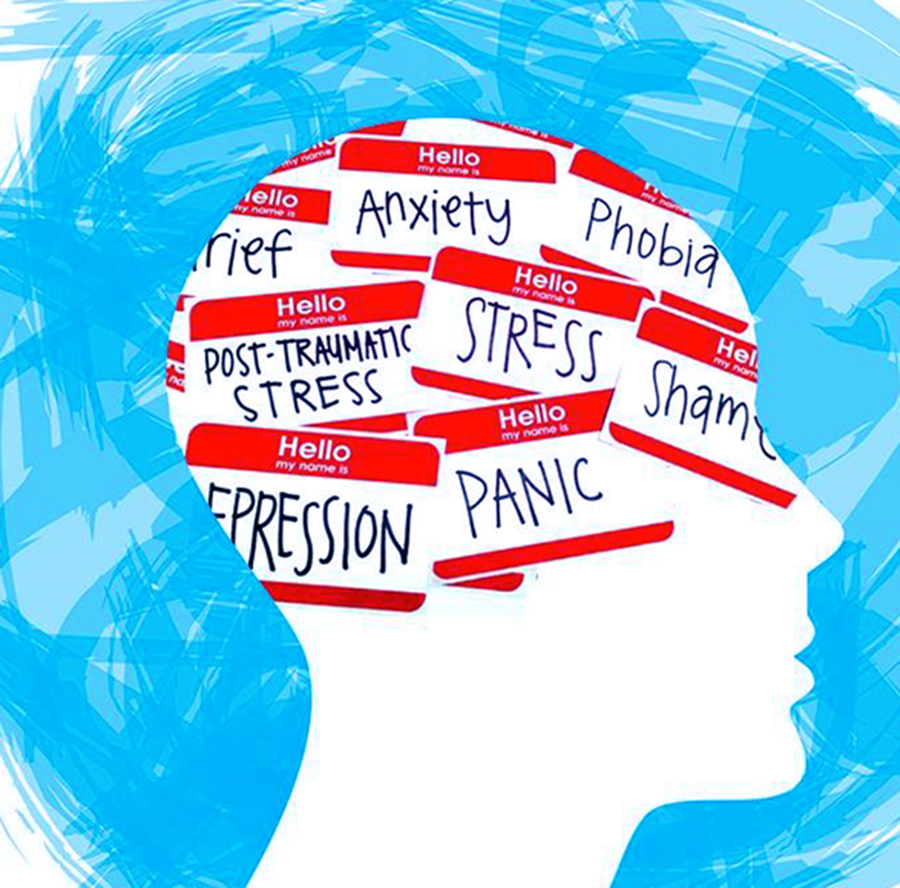By Panagiota Katsaveli,
“It’s the most wonderful time of the year!”, or at least for some people… How many times have we all heard this song – phrase as a brief description of the holiday season and the joy accompanying it? However, this is not always the case since the holiday season can be a rather hard period for a significant proportion of our planet’s population. Stress, anxiety and depression are merely some of the psychological conditions deteriorating as the holidays approach. Mental health is an important part of our wellbeing which we must pay attention to, especially in the Christmas and New Year’s period and even more this year due to the Covid-19 related restrictions and changes.
Stress is the reaction of the mind and the body to difficult and demanding situations. It can be beneficial in certain conditions, but during the holiday season stress levels in human beings increase depriving us of the relaxedness and happiness this period has to offer. People place such unrealistic expectations on themselves about pleasing others with the best gifts or entertaining their guests, that they lose the real meaning behind the celebrations and push themselves to their limits. Moreover, the need to stay on a budget when buying presents, planning meals, along with the added costs of travelling, in many cases, create anxiety which has been proven to lead to neglection of the self and the development of unhealthy habits. Especially this year, the pressure and uncertainty accompanying the Covid-19 pandemic have greatly affected holiday plans; people are not sure if they will have the chance to spend time with their family on top of worrying for their and their family’s health. All these factors can lead to stress and in case, someone has a chronic problem with it, it becomes even more difficult handling it during this time of the year.
Alongside stress, feelings of depression and loneliness can increase in this festive atmosphere. For people experiencing depression the holidays are the worst period of the year since the season beams light on everything that is difficult about living with depression; it creates pressure and expectations to be overly joyful and social. Some people might have a limited social circle or no opportunity to spend the holidays with company, so loneliness is unavoidable. However, even those who have the chance to be social choose not to, if they feel disconnectedness or battle with depression and sadness. Spending the holidays alone can create unwanted comparison with people celebrating in large groups or simply with their loved ones, when for some individuals this is not even a possibility. Grief is intensified during this period since it is a time everyone wants to spend with family and loved ones as well as a time we backdate to previous beautiful memories with the wish to relive them.
Compared to previous years, 2020 has been different in many aspects due to the covid-19 pandemic and obviously the holidays could be no exception to the rule. The holidays equal travelling to meet your loved ones and celebrate since most people do not live close to their family; however, the pandemic has limited or completely banned trips so many people are forced to face the new reality and spend Christmas and New Year’s alone in a novel way deprived of family traditions, dealing with loneliness. Furthermore, the financial problems created in many households because of the influence of the global pandemic can increase levels of anxiety, depression and sadness. In the holiday season, more money is needed to provide for one’s family and to cover for food, gifts and celebration expenses; unemployment caused by the pandemic can enhance the intensity of those feelings in people’s minds.
I am sure everyone has heard that suicide rates go up during the holiday season… well now it is time to debunk this myth! According to psychologists, suicide rates do not increase significantly during the holidays, contrary to popular belief, but they show a raise in the warmer spring and summer months. April Foreman, executive committee member of the American Association of Suicidology and co-founder of Suicide Prevention and Social Media (SPSM), has attributed the creation of this myth to the 1946 movie “It’s a Wonderful Life” with its wrongful depiction of suicidal feelings and thoughts. The truth is that social gatherings and reconnecting with people during the holidays are factors leading to less suicides. Moreover, according to her, less amount of light that is available during winter results to less energy thus even if the feelings of sadness, desperation and depression with suicidal thoughts exist, the lack of energy prevents the actions from taking place; killing yourself requires a great amount of courage and energy! This suicide rate myth that is seemingly harmless can cause significantly negative consequences, including misdiagnosing and ignoring the real causes of suicides, like it happened in a small town where the local petrochemical industry laid off many people in the holiday season causing financial and psychological problems to the residents and increasing the town’s suicide rates.
It is important to note that it is possible to overcome and deal with feelings of depression, anxiety and loneliness mentioned previously, so do not lose hope since better days are coming! First and foremost, everyone needs to acknowledge their feelings and be willing to reach out for help; our loved ones are not just there for the happy moments and holiday celebrations, but also for the sad times when their support is required. Even if family or friends are not available to lean on, community events as well as volunteering can play a fundamental role in uplifting someone’s mood. People should learn to set realistic expectations because the holidays do not need to be perfect and people need to learn to adapt to the change of situations or plans instead of getting discouraged. Also, being able to stick to a specific budget tailored to your financial ability is important so deciding on a budget, before gift or food purchases, is essential. Remember that planning ahead and taking time to relax can alleviate anxiety and stress caused by the preparations and the plans. If those feelings are unbearably overwhelming seeking professional help is the right solution and no one should hesitate to make the right step towards their wellbeing.
Overall, it is important to pay attention to our mental health and the mental health of our loved ones. The holiday season can be a joyful period for some, but a lonely, sad one for others so it important to connect with people and make plans making sure everyone is well. Instead of buying extravagant gifts and spending hours preparing the perfect dinner, devote the holiday season to your family and friends and grant them the gift of your attention and time! In the end nothing is more important than time well-spent with those who we love and love us.
Happy Holidays and a Happy New Year!






